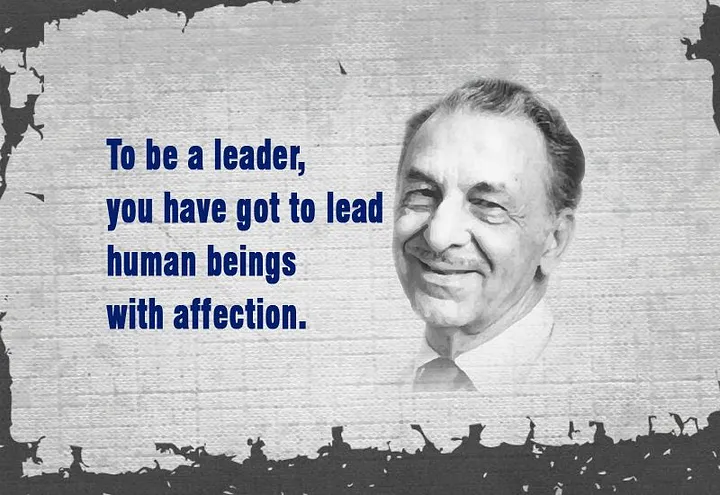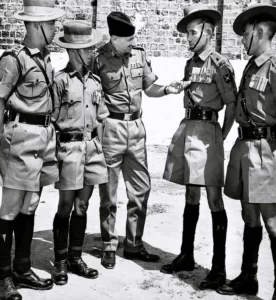The Essence of Leadership

Leadership: The Art of Inspiration, motivation and effective communication
In todays fast-paced, Internet-obsessed, digital media-driven work-from-home world, we often question ourselves: How are new-age leaders made ? or are they born? or how do traditional leaders adapt to todays world ?
How can a leader enhance their presence and their reputation in a digitally connected world?
In our continuing series of articles on leadership, we will deal with the first part of this equation.
Leadership is a concept that permeates every facet of human society and shapes individuals, nations, armies, corporations, and teams. A leader can make or break an organisation just as a corporation or a nation can.
We have before us a plethora of examples of leaders who made bad decisions or had poor judgement calls and destroyed the morale or the fabric of their company or even their nations.
In an airline context, perhaps the greatest example of a leader motivating a corporation would be JRD Tata, who, despite being a tough, no-nonsense leader, led a nationalised Air India under government control and operated it with empathy, care, and initiative, as though it were still in private hands. He inspired employees who gave their hearts and souls for him and still would do so.
In a recent conversation I had with the family of Capt. Maharaj Godbole, one of JRD’s first pilots who flew his personal Tata Airlines aircraft in 1939, he noted how meticulous JRD was and how humane and kind he was. At the peak of the Air India lockout and Pilots strike in 1974, one call from JRD changed the fates and minds of so many pilots, who re-joined work and helped restart the airline, even though Capt. Godbole, his friend Maharaj, did not abandon the strike due to his honour, and JRD understood.
On the other hand, we had the leader of Jet, a good airline modelled along the lines of the erstwhile JRD-Air India, who ravaged and pillaged the airline with so many related party transactions and created an atmosphere of underhanded practises and trust deficits that employees and team leaders behaved in the same way and ran it aground.
Leadership is inspiration.
A leader is one who inspires and is also a person who leads through his / her inspirations. It is about encouraging and leading, guiding nations, shaping businesses, and moulding humans by appealing to their most basic instincts, their soul.
At its very core, a leader guides, motivates, and influences people’s thought processes, encouraging them to be the best versions of themselves, inspiring new initiatives, and seeking to push their boundaries to achieve the impossible.
Another great leader of India, Field Marshal Sam “Bahadur” Manekshaw, said, “Unless you know, and the men you command, know that you know your job, you will never be a leader.”

This highlights the significance of a leader’s expertise and knowledge in gaining the respect and trust of subordinates. Field Marshal Manekshaw believed that a leader must possess a deep understanding of their responsibilities and be capable of guiding and instructing their teams with confidence.
The difference between a leader and a manager?
A manager manages people and follows diktats and laid-down SOPs with little or no personal initiative, devoid of innovative thought processes but steeped in mundane systems and seeking approval and direction from everyone above them, and is scared to take decisions.
A leader ploughs his path, inspiring people and motivating them to go above and beyond the boundaries of endurance and push the envelope of performance. Leaders are often feared by managers, who cannot rise to the level of their competence.
Qualities of a Leader
Vision: His vision must have a clear sense of purpose and where he wants to take the company, country, division, or even organisation. It is an unshakeable edifice of his long-term world view that he translates into his daily routines.
Empathy: A leader who does not feel or has no empathy for his employees, his customers, and his surroundings would never be able to earn the trust or goodwill of his team. He would rule by fear, e.g., Stalin and Mussolini, both brutal and remarkable leaders, but without empathy, who eventually ended up on the wrong side of history. To be able to feel and to emote with your team is what makes you special, makes your people special, and makes them want to jump off cliffs with you.
Motivate — the ability of a leader to motivate his men is the quintessential quality of a leader. To be able to harness the diverse energies and strengths of diverse personalities.
Resilience — the quality of being able to bounce back through defeats and losses — is the hallmark of a leader; motivating his people beyond the losses is a sterling quality. It is his inner confidence that brings about the resilience of a leader.
Integrity is the quality of being honest with your core values and maintaining integrity in the face of all adversity.
Adaptability — the ability to change or mould your ways to adapt to the differing circumstances, whether they are positive or negative, victory or defeat.
Communication Skills: Finally, communication skills are the bedrock of any leader’s bouquet of talents. Every leader must be a communicator, and every communicator is an inspiration. Leaders inspire through communication, thought sharing, and listening to their people. In the best of times and in the worst of times, it is communication that keeps a leader connected with his people.
In essence, leadership is the art of inspiring and guiding individuals towards a common goal, whether that be the company, the group, the nation, or any other group of people. Effective leadership is rooted in communication skills, empathy, and emotional intelligence, and leaders have to learn how to be adept communicators and decision-makers. Leadership is a lifelong journey of growth and adaptation, and it plays a vital role in shaping organisations, communities, and the world at large.
Do you embody these qualities?
Are you an effective leader?
Think about it
In our next article, we will discuss in detail each of the qualities that it takes to become a good leader.